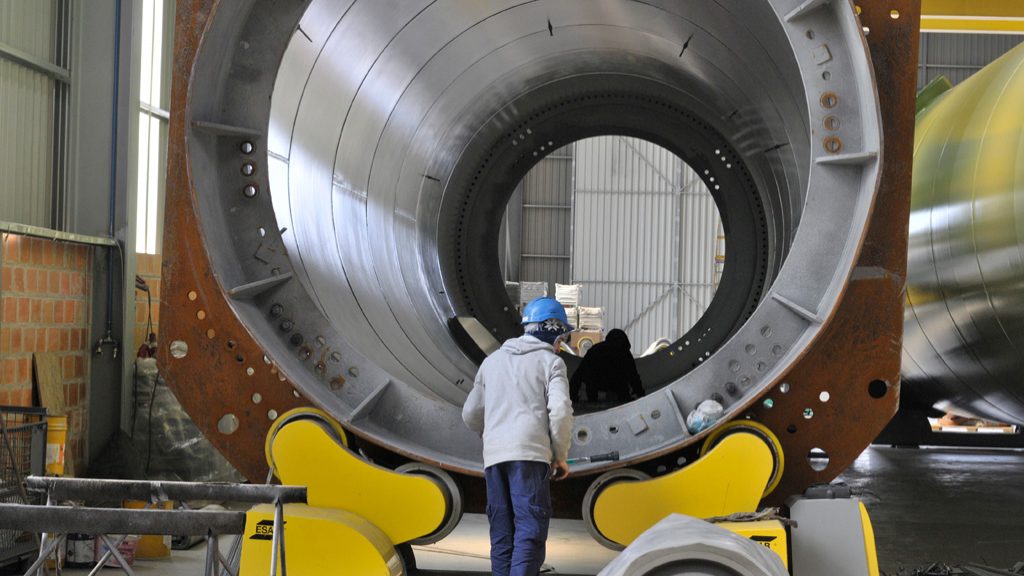Over one third of companies expecting sales to fall in Q4
Around 34% of Portuguese companies expect a drop in sales in the last quarter and 79% believe that the answer to the crisis is to reduce taxes on electricity, gas and liquid fuels.
More than a third (34%) of Portuguese companies expect a drop in sales in the last quarter and 79% believe that the answer to the crisis is to reduce taxes on electricity, gas and liquid fuels, according to a CIP study released on Monday.
These are some of the conclusions of the 21st survey conducted under the “Vital Signs Project”, developed by CIP – Confederação Empresarial de Portugal, (Portugal’s Business Confederation), in partnership with Lisbon ISCTE University’s Management & Marketing FutureCast Lab, which counted a sample of 245 companies, of which 45% are from the industry and energy sector, other services represent 27% and commerce 10%.
This survey was carried out between September 5 and 15, i.e. it ended on the day on which the government measures to support companies were presented.
When asked about the forecast for sales and service provision in the fourth quarter of this year, compared to the same period in 2019 (before the pandemic), the sales expectation of the companies surveyed “is negative”, with 28% expecting an increase, compared to 34% expecting a decrease.
“This outlook is mainly influenced by negative expectations in small businesses, with 32% decreasing, and especially micro businesses, with 42% decreasing,” the study said.
The sample is 77% made up of micro and small businesses, with 6% being large businesses.
Companies that expect to increase sales (28%) expect an average 26% increase in their turnover and those that expect to decrease (34%) estimate a drop “on average of 24%”. The remaining (38%) companies expect to maintain their turnover.
With regard to the evolution of human resources, “in all companies – large, medium, small and micro – there is a majority expectation of maintaining the number of jobs and a greater number of companies that expect to increase, compared to those that expect to decrease”.
In the large and medium-sized companies the expectation of a growth in the number of jobs “is higher than the national average, which is in accordance with the expectations of sales growth”.
That is, 69% of companies expect to maintain the number of employees in the near future (fourth quarter), while the 13% of companies that expect to decrease human resources expect an average drop of 18% and those that expect to increase estimate an average increase of 14%.
“In terms of investment, expectations for 2022 have improved slightly compared to the expectations that had been recorded at the beginning of the year” and “at the moment we have in average terms that 28% of companies think of investing more than in 2019”, indicates the study.
The expectations of a decrease in investments are essentially registered in the small and micro companies, “with figures above the average (25% and 23%, respectively)”.
Almost half (49%) of the companies surveyed expect to maintain investment, while 23% expect investment to decrease (an average drop of 45%, compared to 41% in July).
Those that expect to increase investment (28%) foresee an average increase of 39%, which represents a slowdown compared to the 43% in July.
Regarding the forecast for the evolution of costs, “the expectation of businessmen and top managers is that there will be increases in costs in 78% of the cases, and in 47% of the cases they will be very accentuated”, and with regard to the evolution of prices, half of those surveyed stated that “they will maintain their prices, and in 22% of the cases they will have to make more accentuated increases in their prices”.
Regarding the government measures to mitigate the increase in costs, the majority (79%) “considers the reduction of taxes on electricity, gas and liquid fuels to be very adequate and appropriate”.
The reduction of the TSU and VAT were indicated by 74% and 73%, respectively, of the surveyed companies.
More than half (59%) consider “very adequate or adequate” the existence of financial compensation for energy-intensive companies.
In 87% of the cases, the most valued economic policy suggestions were the revision of the Recovery and Resilience Plan (RRP-the EU bazooka post-pandemic economic recovery funds), in 86% the reduction of Corporate Income Tax (IRC); in 80% the suspension of payment on account of the Corporate Income Tax (IRC) and in 79% the reduction of payment deadlines for public entities.
“To face the energy problem, 89% of companies consider it very appropriate and adequate to promote a plan to promote and support the installation of solar panels in companies,” the study adds.
According to the study, 71% “consider it very adequate and appropriate to subsidise the industrial price of electricity and natural gas” and 60% “consider it very adequate and appropriate to reduce taxation on electric cars and promote the aggregate purchase of energy on the MIBEL [Iberian Electricity Market]”.
Around 40% consider the reactivation of coal-fired power stations to be “very adequate or adequate”, according to the study.


